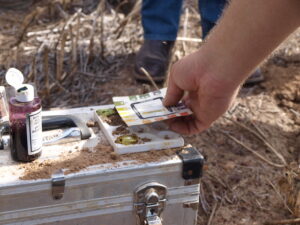
As world leaders gather in Brazil for the COP30 climate negotiations, a significant challenge to global biodiversity and carbon targets has emerged. An international research team, co-led by Dr. Matthew Clark from the University of Sydney, has revealed that many conservation projects are quietly failing, undermining efforts to protect the environment. The commentary, titled “Conservation abandonment is a policy blind spot,” was published in Nature Ecology & Evolution.
Dr. Clark highlighted that globally, approximately US$87 billion is spent annually on conservation initiatives. This figure could rise to as much as US$200 billion depending on various factors. He stated, “As we grapple with the biodiversity and climate crises, these required investments are expected to be US$540 billion by 2030 and US$740 billion by 2050.” The researcher emphasized that while these investments are vital for achieving carbon and biodiversity goals, there is a concerning lack of transparency regarding the longevity of these programs.
Evidence suggests that at least one-third of conservation initiatives are abandoned within a few years of their implementation. Dr. Clark noted, “If we only count the implementation of programs, this will inflate estimates of progress.” This abandonment poses a serious risk to progress discussed at high-profile events like COP, where meaningful ecological recovery can take decades.
The research highlights the concept of “conservation abandonment,” which occurs when responsible parties fail to meet their obligations, either informally or through legal changes that revoke protections. Despite being inactive, many of these projects are still reported in official statistics, obscuring the true state of environmental protection.
Associate Professor Carly Cook from Monash University pointed out the urgency of the situation: “We’re racing to meet global targets like protecting 30 percent of land and sea by 2030. But no one’s asking if the parks we’ve established are still being managed, or if the projects that we’ve started even still exist in any meaningful way.”
The research further revealed that legal protections for conservation areas have been compromised over 3,700 times globally due to what are known as PADDD events (Protected Area Downgrading, Downsizing, and Degazettement). In addition to formal rollbacks, community-led conservation programs in regions such as Africa and South America have experienced widespread abandonment. For instance, in Chile, 22 percent of Territorial Use Rights in fisheries assigned to local communities were later discontinued. In Canada, the downgrading of a marine conservation area permitted oil exploratory drilling across 26,450 square kilometers.
The situation is also dire in Australia, where many conservation programs are underfunded or abandoned after initial enthusiasm. Associate Professor Cook remarked, “Australia has a disappointing record of reducing protections for national parks and protected areas, including for the Great Barrier Reef.” Research from 2021 indicates that Marine Protected Areas have experienced protection downgrades 38 times, impacting over 1 million square kilometers.
The authors of the study advocate for a global monitoring system to track conservation abandonment, alongside more robust long-term funding and enhanced transparency in environmental accounting. Dr. Clark stressed that launching a new conservation project is just the beginning. “These initiatives will need to continue for decades, or sometimes in perpetuity, to yield real change. In many cases, when funding ends or responsibilities are dropped, we go right back to where we started,” he explained.
Co-author Dr. Tom Pienkowski from the University of Kent emphasized the timeliness of this issue in light of recent political developments that may hinder conservation efforts. He noted that the previous Trump administration had cut over US$365 million in funding for international conservation initiatives, raising concerns about the potential for accelerated conservation abandonment on a global scale.
As COP30 delegates prepare to evaluate global progress toward biodiversity and carbon goals, this research underscores the urgent need for policies that ensure the sustainability of conservation measures over time. The findings from this collaborative effort highlight a critical gap in the global approach to environmental protection and the importance of maintaining momentum in conservation efforts worldwide.







